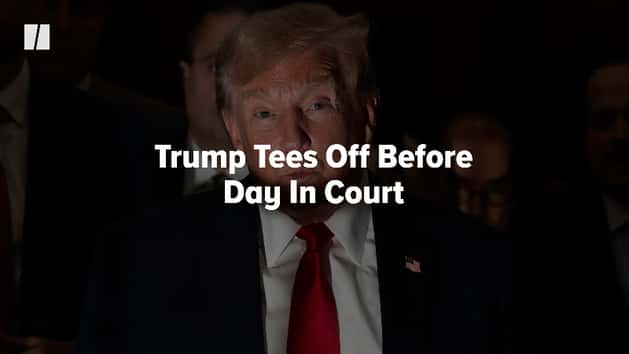LOADINGERROR LOADINGIt took Rep. Tom Cole (R-Okla.) only about a minute to say all he had to say about becoming the most politically powerful Native American currently in elected office, and possibly the most powerful one since the 1920s.“I care a lot about Native American history. I’m from a state that has a huge tribal presence,” Cole told reporters Monday morning, after officially taking the reins of the powerful House appropriations committee from Rep. Kay Granger (R-Texas).Advertisement
The committee, in conjunction with its counterpart in the Senate, divides up the annual pie of federal funding that goes to keep most federal agencies and programs outside of Social Security and Medicare running. For this year, that totaled about $1.6 trillion.Appropriators are the guardians of Congress’ purse strings, and are sometimes regarded as almost an invisible third party on Capitol Hill. Spending bills must be passed by Sept. 30 each year to keep the government open, and making sure those bills get passed makes appropriators often more moderate than their colleagues.In Cole’s case, as he worked his way up the ladder, he said he’s tried to look out for Native issues, such as housing. Cole, 74, has historically also been known as an advocate for higher Indian Health Service funding.“Clearly, that’s something I know a lot about and care a lot about. Some of my colleagues, they come from districts that don’t have much Native presence. I understand why it’s not front and center to them, but it is to me,” he said Monday.Advertisement
Cole, a political consultant before he was elected to Congress in 2002, is a conservative, but one of the few in his party who commands respect from more moderate members as well as hard-liners. His name was mentioned in October as a potential new House speaker, but he took himself out of consideration early and often.Cole said he’ll continue Republicans’ focus on funding defense, homeland security and veterans programs.“We’re going to get the bills done and we’re going to move them through,” he said. “And they’re going to be conservative, Republican bills.”Rep. Tom Cole (R-Okla.) arrives for the Republican caucus meeting at the Capitol in Washington, D.C., Oct. 19, 2023.Alex Brandon via Associated PressCole’s brevity when asked about the significance of his taking the gavel was in character — he does not shy from saying he’s a proud member of the Ada, Oklahoma-based Chickasaw Nation, but he doesn’t bring it up spontaneously very much. At the same time, his conciseness on Monday undersold the moment.Advertisement
In 2020, Native voters provided some of the margins in key states for President Joe Biden, including Arizona and Wisconsin. Afterward, Indigenous activists were able to parlay the recognition of that work into a successful nomination of Deb Haaland, a former U.S. representative, to become the first Native interior secretary. The Interior Department is the part of the government that most of the nation’s 574 federally recognized tribes deal with the most.And in 2022, with the election of Rep. Mary Peltola (D-Alaska) …
Article Attribution | Read More at Article Source
The committee, in conjunction with its counterpart in the Senate, divides up the annual pie of federal funding that goes to keep most federal agencies and programs outside of Social Security and Medicare running. For this year, that totaled about $1.6 trillion.Appropriators are the guardians of Congress’ purse strings, and are sometimes regarded as almost an invisible third party on Capitol Hill. Spending bills must be passed by Sept. 30 each year to keep the government open, and making sure those bills get passed makes appropriators often more moderate than their colleagues.In Cole’s case, as he worked his way up the ladder, he said he’s tried to look out for Native issues, such as housing. Cole, 74, has historically also been known as an advocate for higher Indian Health Service funding.“Clearly, that’s something I know a lot about and care a lot about. Some of my colleagues, they come from districts that don’t have much Native presence. I understand why it’s not front and center to them, but it is to me,” he said Monday.Advertisement
Cole, a political consultant before he was elected to Congress in 2002, is a conservative, but one of the few in his party who commands respect from more moderate members as well as hard-liners. His name was mentioned in October as a potential new House speaker, but he took himself out of consideration early and often.Cole said he’ll continue Republicans’ focus on funding defense, homeland security and veterans programs.“We’re going to get the bills done and we’re going to move them through,” he said. “And they’re going to be conservative, Republican bills.”Rep. Tom Cole (R-Okla.) arrives for the Republican caucus meeting at the Capitol in Washington, D.C., Oct. 19, 2023.Alex Brandon via Associated PressCole’s brevity when asked about the significance of his taking the gavel was in character — he does not shy from saying he’s a proud member of the Ada, Oklahoma-based Chickasaw Nation, but he doesn’t bring it up spontaneously very much. At the same time, his conciseness on Monday undersold the moment.Advertisement
In 2020, Native voters provided some of the margins in key states for President Joe Biden, including Arizona and Wisconsin. Afterward, Indigenous activists were able to parlay the recognition of that work into a successful nomination of Deb Haaland, a former U.S. representative, to become the first Native interior secretary. The Interior Department is the part of the government that most of the nation’s 574 federally recognized tribes deal with the most.And in 2022, with the election of Rep. Mary Peltola (D-Alaska) …nnDiscussion:nn” ai_name=”RocketNews AI: ” start_sentence=”Can I tell you more about this article?” text_input_placeholder=”Type ‘Yes'”]

